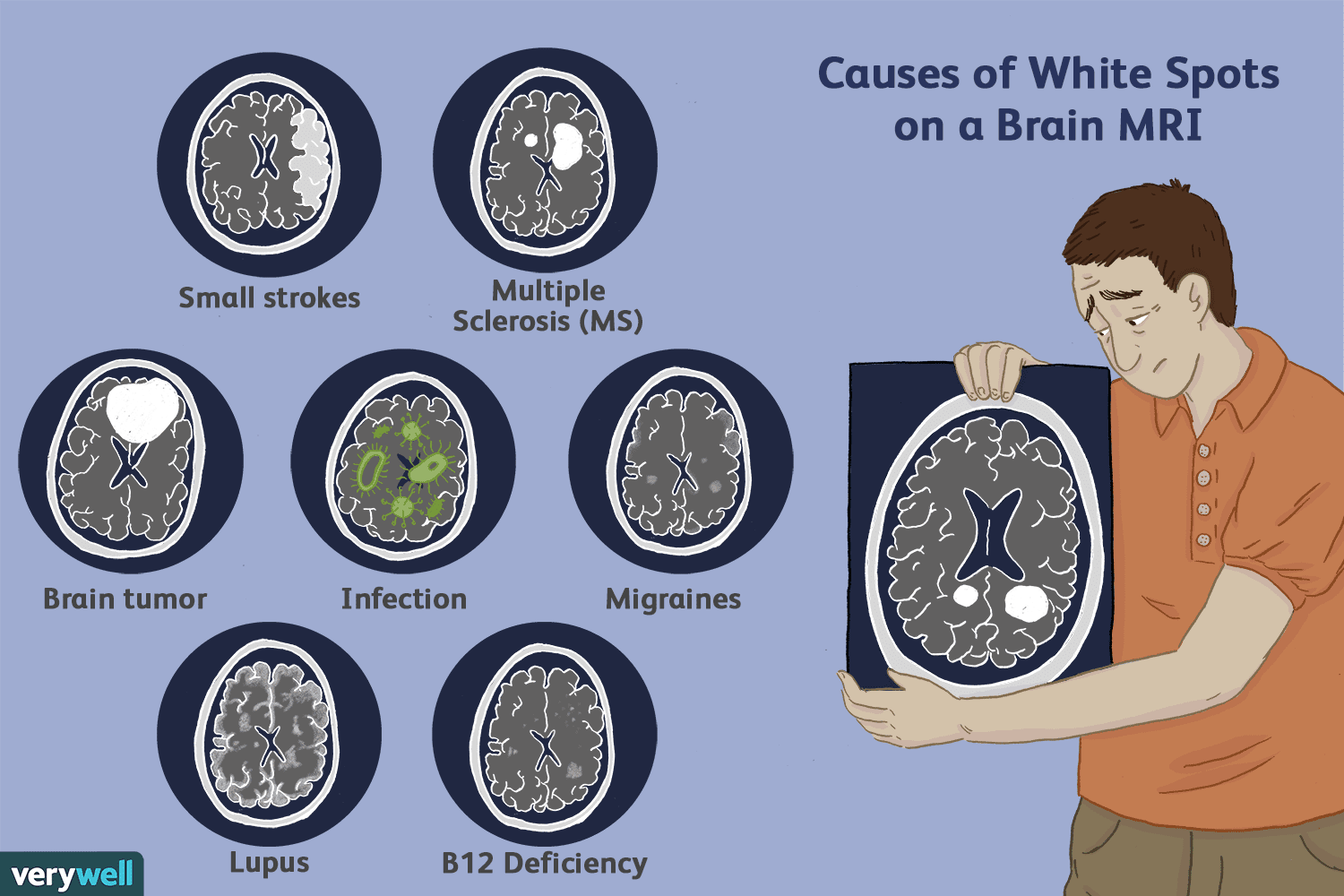Migraine & MRI: What a Brain Scan Shows — and When It’s Needed
November 10, 2022
What Is Migraine And What Does MRI Of Brain Tell Us
Migraine causes pain and discomfort to at least 6 million people in the UK, according to the NHS. Up to 16,500 emergency hospital admissions yearly have also been attributed to migraine attacks. An estimated £150 million per year is spent on treating migraines among citizens between 15 and 69 years old. Women are at higher risk of experiencing migraines. The condition also tends to run in families. How can a common and seemingly ordinary ailment cost so much and cause pain to so many?
What Is Migraine?
Migraines are considered as a disabling condition characterised by a headache felt intensely on one side of the head with a pain score ranging from moderate to severe. The exact causes have yet to be ascertained, although experts now agree that migraines disrupt the normal blood flow to the brain which, in turn, affects nerve links and chemical reactions.
Migraine symptoms also include the following:
Migraine symptoms also include the following:

- Increased sensitivity to bright light or noise
- Nausea and vomiting
- Dizziness
- Pain on the neck, shoulders, and arms
- Feeling very warm or very cold
Some people may also experience migraine with or without ‘aura’. Aura refers to a blurred vision that may or may not be accompanied by a headache or any of the other common symptoms of migraines.
Migraine triggers have yet to be established, although migraine attacks have been associated with the following:
- Dieting and skipped meals
- Alcohol consumption
- Caffeine withdrawal
- Stress, anxiety, and lack of sleep
- Smoke and pollution
- Lighting
- Noise
- Odours
- Exercise or any intense physical activity
- Fatigue
- Hormonal changes
- Certain foods, such as chocolates, dairy products, onions, peanuts, and processed meats
MRI And The Brain: What Can An MRI Tell You
The main reason why everyone who goes to their doctor complaining about a throbbing head is not required to undergo an MRI is that the
brain scan
of a person suffering from migraine attacks look the same as someone who does not have a migraine. Also, imaging scans like MRI can be expensive for the NHS to perform, but private MRI scans are reducing in price and most are covered by private medical insurance.
During your consultation, expect to answer questions and undergo a physical examination. Your doctor will specifically attempt to establish whether you are experiencing a primary headache or a secondary headache. The difference is that a secondary headache will have underlying causes, such as a tumour, while a primary headache will not. If your doctor suspects an underlying cause or wants to be sure your migraine does not indicate any other more severe condition, you will likely be sent for a migraine MRI scan to aid further investigation and inform diagnosis.
During your consultation, expect to answer questions and undergo a physical examination. Your doctor will specifically attempt to establish whether you are experiencing a primary headache or a secondary headache. The difference is that a secondary headache will have underlying causes, such as a tumour, while a primary headache will not. If your doctor suspects an underlying cause or wants to be sure your migraine does not indicate any other more severe condition, you will likely be sent for a migraine MRI scan to aid further investigation and inform diagnosis.
Can Migraines Lead To Brain Damage?
In a 2017 study published in the journal, Neurology, the researchers found that the brain scan of migraine sufferers showed a decrease in grey matter and white matter fibre volume. The findings suggest that migraines may either cause irreversible damages to the brain or that observed structural damages among migraine sufferers are congenital.
On the other hand, the American Migraine Foundation explains that permanent structural damage that affect the brain’s neurological and cognitive functions should not be typically expected among migraine sufferers.
PAA:
What are migraine spots on MRI?

Image Credits: verywell
There are instances where migraine MRI white spots can be seen on the MRI image scan of a person suffering from migraine. Some of these have been associated with stroke and multiple sclerosis. However, these migraine spots on MRI cannot be used to rule in migraine or rule out other conditions, since not all people who suffer from migraine attacks show these spots. In most cases, these marks are benign and should not be a cause for you to panic in case your MRI scan shows these.
When should you get an MRI for a headache?
Headaches, no matter how severe or chronic, do not always require an MRI scan. However, when you experience headaches that are sudden, unusual, or cause you to worry, you should book an appointment with your doctor. MRI for migraine headaches is not typically recommended for everyone who experiences migraines. Rather, MRI is only recommended when a migraine has been ruled out and that there are other compelling reasons for a physician to suspect possibly more serious underlying causes. In these cases, a more thorough examination using MRI scanning will be necessary to investigate the following:
- Sudden onset of a very bad headache, most especially if it persists over several days
- Headache that is accompanied by seizure
- Presence of fever
- History of involvement in an accident or head injury
- speech, numbness, and general weakness on one side of the body
Can migraines cause lesions on the brain?
Yes. A landmark study published in Neurology concluded that migraines can cause lesions, particularly in the brain’s white matter.
Another well-acclaimed study published in the journal, Cephalalgia in 2011 found that migraine attacks do not only cause brain lesions but also iron depositions. In addition, the researchers reported a correlation between increased risk of developing lesions and the frequency of migraines. Similarly, the longer a person has experienced migraine attacks, the higher the risk is of developing brain lesions.
Another well-acclaimed study published in the journal, Cephalalgia in 2011 found that migraine attacks do not only cause brain lesions but also iron depositions. In addition, the researchers reported a correlation between increased risk of developing lesions and the frequency of migraines. Similarly, the longer a person has experienced migraine attacks, the higher the risk is of developing brain lesions.
What happens if migraines go untreated?
Untreated migraines will inevitably worsen. Without proper interventions, such as rest, and support of pain medications, a migraine can go easily from moderate to severe, affect or shift to other parts of the head, or keep going for several days as it causes more pain and discomfort.
Over time, untreated migraine leads to lesions. In turn, lesions can cause structural damage to the brain. Migraine MRI lesions can then lead to brain atrophy. That means migraines can cause irreversible damage to certain neurons which, eventually, can lead to mental health conditions, including dementia and memory loss.
Over time, untreated migraine leads to lesions. In turn, lesions can cause structural damage to the brain. Migraine MRI lesions can then lead to brain atrophy. That means migraines can cause irreversible damage to certain neurons which, eventually, can lead to mental health conditions, including dementia and memory loss.
References:
NHS. Migraine. Prevention. Link:
https://www.nhs.uk/conditions/migraine/prevention/
Access Date: 1 Jun 2020
NHS. Improved NHS migraine care to save thousands of hospital stays. Link:
https://www.england.nhs.uk/2020/01/improved-nhs-migraine-care/
Access Date: 1 Jun 2020
Bashir A, MD, Lipton R, MD, Ashina S, MD, and Ashina M, MD, PhD. Migraine and structural changes in the brain. A systemic review and meta-analysis. Neurology. 2013 Oct 1; 81(14): 1260–1268. doi: 10.1212/WNL.0b013e3182a6cb32 Link:
https://www.ncbi.nlm.nih.gov/pmc/articles/PMC3795609/
Access Date: 1 Jun 2020
Frishberg B, MD, What to know about your headache before getting a brain scan? American Migraine Foundation. Link:
https://americanmigrainefoundation.org/resource-library/headache-mri-and-brain-imaging/
Access Date: 1 Jun 2020
Palm-Meinders I, Arkink E, Koppen H, Amlal S, et.al. Volumetric brain changes in migraineurs from the general population. Neurology, 2017 Nov 14;89(20):2066-2074. doi: 10.1212/WNL.0000000000004640. Epub 2017 Oct 11.
Link: https://pubmed.ncbi.nlm.nih.gov/29021356/ Access Date: 1 Jun 2020
Link: https://pubmed.ncbi.nlm.nih.gov/29021356/ Access Date: 1 Jun 2020
Kruit C, MD, van Buchem M, MD, PhD, Launer L, PhD, et.al. Migraine is associated with an increased risk of deep white matter lesions, subclinical posterior circulation infarcts and brain iron accumulation. The population-based MRI Camera-study. Cephalalgia. 2010 Feb; 30(2): 129–136. doi: 10.1111/j.1468-2982.2009.01904.x Link:
https://www.ncbi.nlm.nih.gov/pmc/articles/PMC3241741/ Access Date: 1 Jun 2020
https://www.ncbi.nlm.nih.gov/pmc/articles/PMC3241741/ Access Date: 1 Jun 2020









